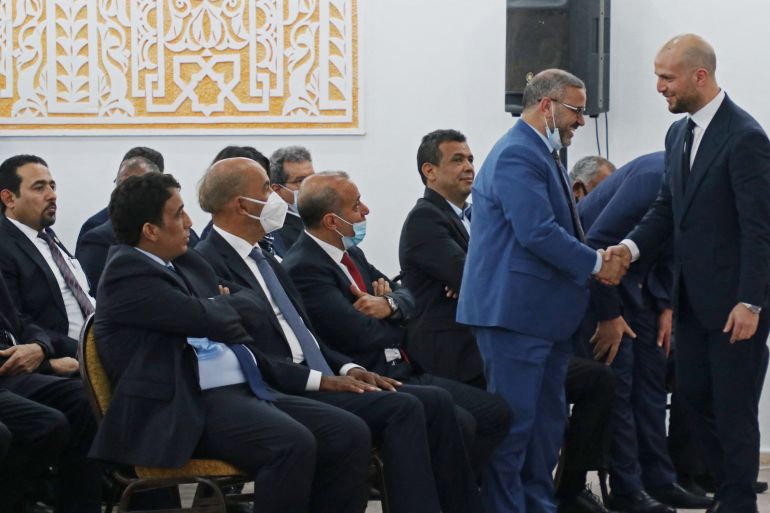Libya parliament adopts law on legislative elections
The new law comes before a planned national vote set for December 24 under a UN-led peace process for Libya.

Libya’s parliament on Monday passed a law on legislative elections, its spokesman said, before a planned national vote set for December 24 under a UN-led peace process.
The legislature “passed a law on elections to the House of Representatives during Monday’s sitting”, Abdullah Bliheg of the eastern-based parliament wrote on Twitter.
Keep reading
list of 3 itemsUS passes bill enabling sanctions on foreign actors in Libya
In Pictures: Jewel of Roman Empire lies neglected in Libya chaos
“With this, the council will have completed the necessary legislation needed to organise the presidential and parliamentary elections,” he added.
#تصريح
إقرار قانون انتخاب مجلس النواب في جلسة اليوم الإثنين، وبذلك يكون المجلس أنجز التشريعات اللأزمة لتنظيم الانتخابات الرئاسية والبرلمانية. #عبدالله_بليحق #المتحدث_الرسمي_باسم_مجلس_النواب_الليبي— Abdullah Bliheg (@AbdullahBliheg) October 4, 2021
The law came less than a month after speaker Aguila Saleh signed off a presidential elections law in a move opponents said bypassed due process and favoured a run by his ally, eastern-based renegade military commander Khalifa Haftar.
Days later, parliament passed a no-confidence vote in the Tripoli-based unity government of interim Prime Minister Abdul Hamid Dbeibah.
Libya has endured a decade of violence since the 2011 fall of Muammar Gaddafi in a NATO-backed uprising, which unleashed a complex civil war that dragged in multiple foreign powers.
The country was split between rival administrations: the United Nations-recognised Government of National Accord (GNA) based in the capital, Tripoli, and a separate eastern-based administration, led by Haftar. Each was backed by an array of militias and foreign powers.
A landmark ceasefire between eastern and western camps last year, after Haftar’s unsuccessful year-long bid to seize Tripoli, paved the way to a UN-backed peace process.
Dbeibah’s unity government took office in March with a mandate to lead the country to the December elections, but wrangling about the legal and constitutional basis for the polls has cast increasing doubts about the process.
Meanwhile, Libyan Foreign Minister Najla al-Mangoush announced a “very modest start” to the withdrawal of foreign fighters from the country on Sunday.
The UN estimates 20,000 foreign combatants are deployed in the country, including Russians from the private security company Wagner, Chadians, Sudanese and Syrians.
The UN, Libya, and several other countries have repeatedly called for the departure of foreign forces from Libyan soil.